
Islamabad Election Manifesto 2024
An Islamabad for All
AWP’s manifesto for democratizing the city
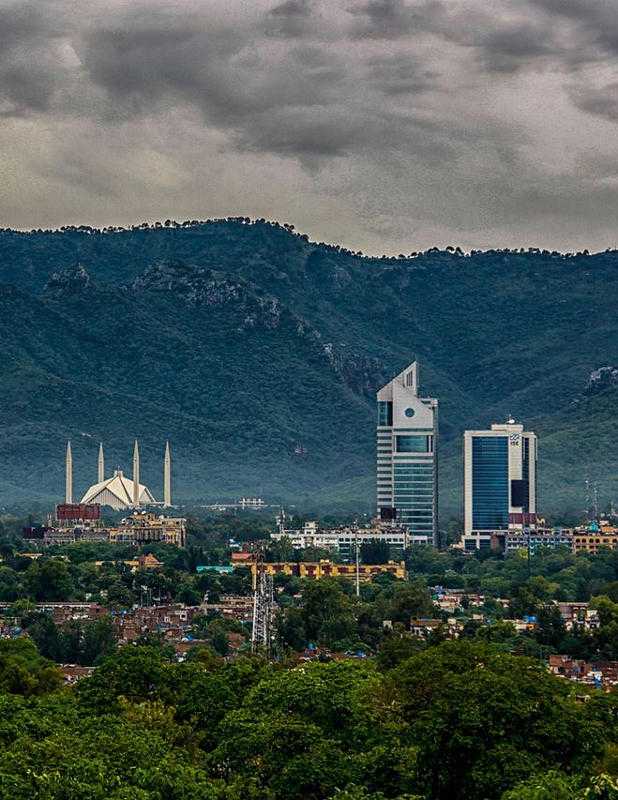
Since its creation in 2012, the Awami Workers Party has established itself as the only political force in Pakistan that is committed to overturning our elitist, patriarchal and unsustainable status quo. We have struggled consistently to bring to the fore the real issues and concerns of Pakistan’s long-suffering people, and in particular the working classes, women, religious and ethnic minorities that are still condemned to the status of second-class citizens 77 years after the country was created.
This is no small task in an environment where media sensationalism, money and influence of ‘electables’ and the machinations of the deep state render it extremely difficult to retain the substance of democracy, of the people, by the people and for the people. Today’s Pakistan is extremely young, and faces enormous challenges in the years ahead. More democracy and real alternatives to the status quo are the answers to all of these challenges, and we will remain steadfast in our struggle regardless of the scale of these challenges moving forward.
AWP has formulated a manifesto for the 2024 general elections that focuses on structural issues of importance to the country. This manifesto focuses on issues of local social, political and economic relevance to Islamabad’s citizens.
While we have established a presence in many parts of the country, our work in Islamabad-Rawalpindi has been particularly significant, both because the federal capital and its twin city are perpetually in the public eye, and also because Islamabad remains beset by many of the same structural crises that affect Pakistan at large, despite being the only city in the country planned and constructed from scratch in the 1960s.
After the 18th amendment, despite the devolution of various subjects to the provinces, there remains an administrative vacuum in Islamabad, which is still governed bureaucratically and undemocratically. For this purpose, our manifesto is expressly geared toward bringing true participatory democracy to the capital city so that its development reflects its residents’ will and aspirations.
It is often said that Islamabad is 15 miles from the rest of Pakistan, but despite all of the slogans about ‘Islamabad the beautiful’, class inequality, patriarchal oppression, ecological destruction and ethnic/religious discrimination are rife in the capital. The AWP has established itself firmly as the voice of resistance to all forms of power in Islamabad, and has also previously showed that the politics of change can be taken to the ballot box. We garnered almost 10,000 votes in 8 union councils in the 2015 local government elections, thereby making us amongst the highest vote-getters behind the ruling-class parties PML-N and PTI.
In this general election we are once again appealing to Islamabad’s conscience, to its young people, women, religious minorities, people of all ethnic backgrounds who have migrated to the city in search of education and employment, and to its working masses who build its roads and plazas, clean its homes and offices and without whom the lavish lifestyles of the rich and powerful would not be possible. We want to build an Islamabad for its people, so join us in the struggle and prove that a people’s campaign can succeed.
- Constitutional & Local Government Reform
- Ensuring Housing For All Citizens
- Protecting our water and environmental resources
- Ensuring free, uniform and scientific education fit for the 21st century
- Dignified work, regularized labor and a living wage
- Securing a promising future for young people
- Equality and progress for women, girls and transgender people
- A growth strategy for Islamabad
- Creating a pro-people state
- Child Rights and Protection against Harassment
- Sustainable and equitable energy

Constitutional & Local Government Reform
The AWP won three general councilor seats in the 2015 local government elections in Islamabad; our elected leaders were expected to be granted legal and fiscal authority to address the needs of their constituents. Instead, since the establishment of the Municipal Corporation of Islamabad (MCI), there has been no explicit separation of powers between the MCI and the unelected Capital Development Authority (CDA), and decision-making processes have remained opaque and insensitive to the needs of the city's residents. AWP intends to:
- Establish a local government system free of ambiguities, with the people's elected representatives invested with genuine decision-making authority, including the right to generate revenue through a progressive tax regime.
- Make the CDA and other government agencies answerable to elected bodies, particularly with regards to land use which has historically been governed by the elitist and arbitrary CDA Master Plan.
- Within each zone and sector, allocate at least 33% space for civic services, education, health, community centers, recreational spaces, daycare centres, parks, old homes, crisis centers and public hostels.
- Encourage broad-based participation of ordinary citizens in public life through the formation of neighborhood councils and popular oversight committees on key issues affecting the public interest.
- Ensure electoral procedure conform to the ECP's regulations about election expenditures so as to ensure a level-playing field for historically underrepresented segments including working classes, women, youth and religious minorities.
- Ensure direct elections to the Senate from Islamabad, so that our Senators are accountable to Islamabad’s citizens and can legislate for Islamabad’s interests.
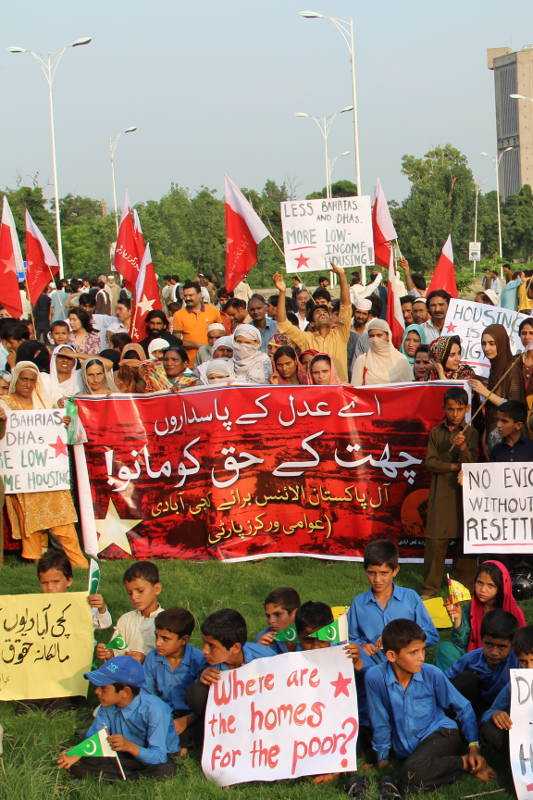
Ensuring Housing For All Citizens
There are more than 100 katchi abadis or informal settlements in Islamabad at present, a microcosm of the country-wide situation: the poorest 68% of the urban workforce has access to only 1% of the market-provided housing in cities. More katchi abadis will crop up in years to come unless the elitist planning paradigm that privileges the rich and dispossesses the poor is not redressed. AWP intends to:
- Recognise katchi abadi residents as hard-working citizens that have been denied their basic rights to shelter and basic facilities such as water, sanitation and electricity. Instead of perpetuating the class stigma around these settlements, we will undertake a holistic programme of katchi abadi integration into the body-politc.
- Set up an authority in the ICT which, following in the progressive footsteps of the Sindh Katchi Abadi Authority (SKAA), will list, survey, notify and regularize all informal settlements, guaranteeing residents proprietary rights over time.
- In the case of new property developments, both residential and commercial, impose progressive tax measures, the revenues from which will be used to develop and preserve affordable housing.
- Establish 33% quotas for low-income groups in all residential schemes, while curbing speculative practices so as to ensure that prices of low-income plots do not transgress stipulated ceilings.
- Address steep and unregulated increases in rent through the creation of a Rent Review Board that will introduce statutes including Rent Stabilisation and Control, and a specific mechanism to establish a percentage ceiling for rent hikes.

Protecting our water and environmental resources
The AWP seeks to address the growing and increasingly dire environmental problems faced by the citizens of Islamabad, particularly the growing water crisis. In doing so, we will ensure a secure future for coming generations. AWP intends to:
- Address water shortages, poor water quality, and the spread of water-borne diseases by investing in wastewater treatment plants and rainwater harvest systems. Water will be distributed equitably throughout the city, ensuring that even the most vulnerable populations have access to potable water.
- In order to reduce our high rates of freshwater use for activities that do not require it, we will support community level wastewater capture and reuse to create a buffer for periods of water shortages.
- Address theft, leakages, mismanagement and corruption in water supply by constituting citizen’s water boards that will ensure efficiency, equitability, effectiveness and accountability in our city’s water management.
- Constitute a fair and just water pricing mechanism instead of a flat-rate that will encourage judicious consumption, enable lower and middle income households to have sufficient water for household use and disincentivize excessive consumption for luxury uses.
- Revolutionize solid waste management by setting up a recycling plant and employing closed-loop landfill practices for organic waste that not only reduce environmental impact of waste, but can also produce energy to supplement our dwindling energy resources. Safer practices will be employed for the disposal of biohazardous medical waste, and the Directorate of Environment, Park and Horticulture Municipal Corporation of Islamabad will be empowered to fine garbage dumping, burning, and littering. Plastic shopping bags will be phased out, to be replaced by reusable cloth bags – we will spread public awareness in this regard during our election campaign
- Counter Islamabad’s shrinking biodiversity and loss of tree cover through reforestation programs and by strictly enforcing mandatory environmental impact assessments (EIA), in line with Section 12 of the Environment Protection Act 1997 for all future development projects.
- Curb industrial air, noise, and groundwater pollution by enforcing stricter environmental regulations for industries. Increased traffic congestion and subsequent air pollution will be reduced through the introduction of more efficient public transport alternatives and the implementation and enforcement of vehicle emission standards.

Ensuring free, uniform and scientific education fit for the 21st century
In line with its country-wide manifesto, AWP is committed to revamping Islamabad’s education system to ensure access to education for all of the city’s children without discrimination. We are also committed to equipping our children and youth with the skills required for them to become productive and conscious 21st century citizens. AWP intends to:
- Build public schools on a needs-basis to ensure free and quality education for all children up to grade 12 and revamp school conditions and quality to meet 21st century educational standards.
- Ensure at least 10% of Islamabad’s GDP is spent on education.
- End the practice of hiring teachers on daily wages and create formal contracts for all teachers, with incentives for in-service training.
- Affix legal responsibility to ensure enrolment and quality standards for officials of the education department so as to generate processes of formal accountability for education provision.
- Regulate private school fee structures and policies to ensure a fair relationship between institutions, parents, teachers and students. The current practice of private educational institutions across Islamabad is to increase their fees annually anywhere between 10-15%, despite the fact that Pakistan’s average rate of inflation in the past five years has remained below 5%.
- Review curricula to eliminate all forms of national, religious, class, gender and sectarian prejudices and impart to students scientific and evidence-based content.
- Encourage and foster creativity, critical thinking and healthy extra-curricular activities within and among schools.
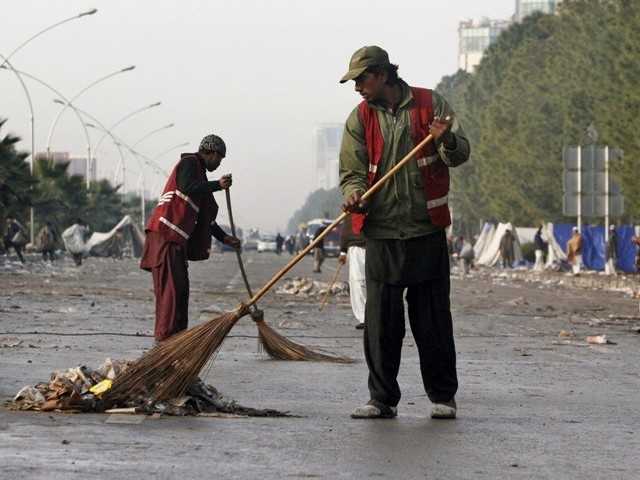
Dignified work, regularized labor and a living wage
AWP will push for increased government intervention to strengthen protections for the thousands of ordinary workers in Islamabad, in particular informal workers and domestic workers (most of whom are women and underage children). AWP intends to:
- In line with our country manifesto, push for an increase in minimum wage to a living wage of 50,000, to be increased according to inflation rates.
- Strictly enforce existing labor laws regarding pay and working conditions
- Promulgate the Islamabad Domestic Workers Protection Act.
- Facilitate and encourage the unionization of domestic workers so that they are aware of the laws governing their occupation, and are able to collectively bargain for better pay and work conditions;
- Ensure proper contracts for domestic workers with clearly defined work hours, holidays, and severance pay / notice period for termination of employment;
- Enforce the Employment of Children Act, 1991 against the hiring of underage workers; we will apply minimum wage, EOBI pension, and insurance against injury at work to all domestic labourers.
- Create secure employment and dignified working conditions for doctors, nurses, paramedical staff and other health workers to ensure they can offer services in a conducive work environment.

Securing a promising future for young people
AWP is conscious of the dwindling opportunities for young people in Islamabad, many of whom feel frustrated about the lack of jobs, opportunities and recreational spaces available to them. We intend to:
- Design and implement employment and paid internship schemes aimed at creating employment opportunities for young people.
- Create vocational schemes targeted at young people to enable them to acquire and use useful skills.
- Create career counseling and employment services within and outside educational institutions that can link young people with jobs.
- Allocate public spaces and resources for recreational purposes, including sports, arts and culture. Special emphasis will be placed on bringing young people together in such spaces across class, ethnic and gender divides.
- Operationalize a growth strategy (see #8) focused on fostering and facilitating creative, cost-effective and effective entrepreneurial solutions to collective problems by young people.

Equality and progress for women, girls and transgender people
There is arguably no other section of society so underprivileged and oppressed than women and girls. They are literally second-class citizens, typically confined to the home, and those who step into the male-dominated public sphere for education and employment are made to struggle for basic dignities and freedoms that men simply take for granted. AWP intends to:
- Create equal opportunities for women and girls in all spheres of life and emphasize in particular quality education for girls in all localities of the capital through to the college level.
- Encourage and incentivize women graduates in the medical and dental professions –upto 70% of all graduates in the profession, and the majority of the high-achievers in educational institutions – to become practitioners after graduation.
- Ensure equal employment opportunities and pay/working conditions, with the proposed Equal Workforce Act legally obligating all public and private organizations to ensure proportionate gender balance among their employee base.
- Provide subsidies to women who work for a living and/or full-time mothering responsibilities for daycare facilities, along with other measures intended to ensure that the ‘double burden’ of work in both public and private spheres does not fall upon the shoulders of women alone.
- Ensure building of hostels for female students and working women on a priority basis and relax stringent curfews in such hostels to ensure women can go about their everyday lives without fear of harassment.
- Act against harassment of women and transgender people in public spaces and vow to introduce legislation that ensures severe and deterrent penalties for offenders, in addition to addressing the various social and administrative barriers that are currently impeding the effectiveness the Protection Against Harassment of Women at the Workplace Act 2010.
- In order to counter the various forms of discrimination faced bythe transgender community in Pakistan, ensure the implementation of the Transgender Persons (Protection of Rights) Bill 2018, and push for the inclusion of the transgender community in all public and private organizations, particularly educational institutions, to enable their integration into social and public life as equals.
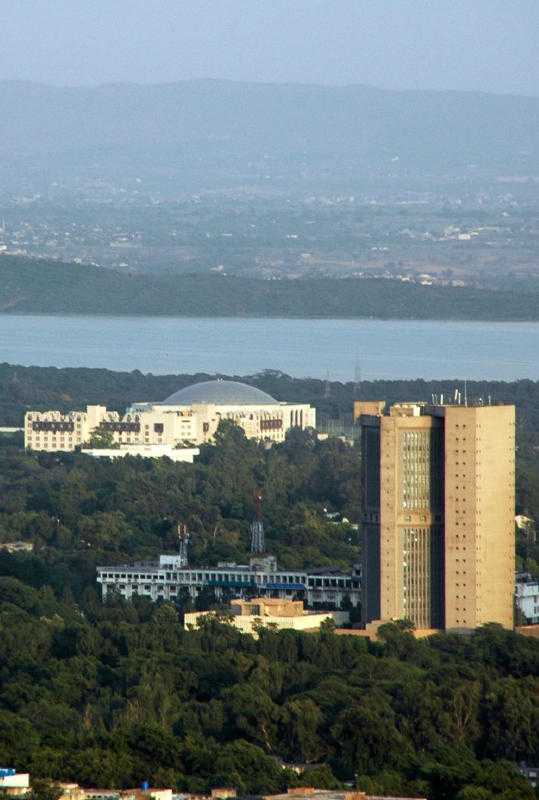
A growth strategy for Islamabad
The AWP is committed to a growth strategy for Islamabad that is geared towards fulfilling people’s basic services and employment needs while charting a course towards improved productivity, sustainability and distributive efficiency.
- Regularization: We will make a concerted effort to regularize small and micro-enterprises in Islamabad, and provide incentives for their development into thriving businesses. This must involve an easing and simplification of the licensing regime to allow low-income citizens to establish their own businesses without having to cater to the whims of powerful officials. Small businesses will also be helped to integrate into the formal economy by helping them open bank accounts and obtain low-interest loans.
- Revamping zoning laws: The zoning laws in Islamabad have favored a disproportionate bias toward residential houses (in particular, large houses for the elite). ‘Commercial’ areas are allocated just 5% of space in sectors, compared to 55% for housing, which leads to a restriction of space for economic activity. AWP will revamp zoning laws in Islamabad to allow greater space for commercial activity, more mixed-use spaces for recreation and small business parks, encouraging high-rise and dense construction for working people and development of joint property rights for buildings and common areas.
- Fostering creativity: To create innovative and people-friendly growth, Islamabad requires spaces in which creativity can be fostered. AWP will incentivize the development of incubation spaces in Islamabad where young people will be trained and supported to develop both creative entrepreneurships as well as devise innovative solutions to collective social problems. We will also develop on a priority basis, public spaces in all sectors, such as libraries, community centers, town spaces, theaters and playgrounds that allow for the development of healthy, creative communities. Academics, architects and experts in various technical fields will be engaged to develop such people-friendly community spaces.
- Tourism promotion: AWP will seek to realize this potential by developing tourism infrastructure, creating museums, artistic and cultural spaces to develop the city’s cultural potential, encouraging a recreation industry that caters to young people and tourists and easing overbearing policing that infringes on people’s social freedoms and damages the city’s reputation for friendliness.
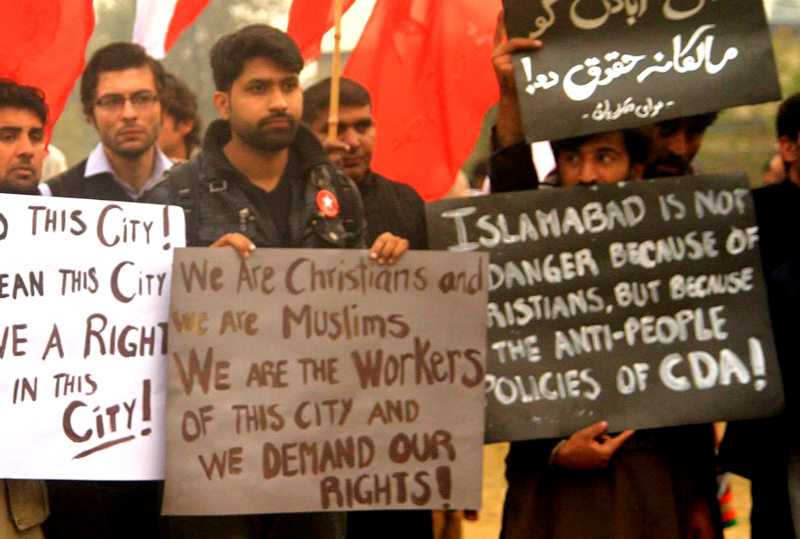
Creating a pro-people state
Rather than serving the people according to their constitutional responsibilities, many state office-bearers who wield power often use it to exploit the weakest segments of society. The state-sponsored politicization of religion, especially since the 1980s, has led to the indoctrination of millions of children and adolescents across the country, often resulting in violence and social practices deleterious to the public interest. Furthermore, the institutions responsible for providing justice and security to ordinary people have become synonymous with injustice and tyranny. State institutions offer little to the weakest segments of society, including minorities and the disabled. AWP will:
- Take strict measures against extortion, harassment, ethnic and religious discrimination and violence against the poor by state office-bearers.
- Ensure zero tolerance for mob rule; the party will guarantee the life, liberty and property of all citizens from violent religio-political organizations, and particularly women and religious minorities.
- Eliminate hate-based material from educational curricula in madrassahs and beyond, and create a uniform system of education based on secular principles in public and private institutions alike.
- Ensure strict regulation of hate speech on the media - private, public and social - to end incitement to violence without undermining the fundamental right to free speech.
- Regulate the functioning of religious institutions across the ICT area so as to protect religious freedom, contain sectarian passions and ensure that adequate public space is protected for and accorded to recreational, health and other public imperatives.
- Guarantee social, political and individual freedoms, particularly the right to free expression and generate space for healthy debate on various social, cultural economic and political issues, to foster a genuinely democratic and plural public culture.
- End the discriminatory prohibition preventing katchi abadi residents from burying their dead
- Protect and promote the rights of disabled people, by allocating resources to enable their access to services and employment, ensuring access for the disabled to all public spaces, educating the public about disability rights, and investing in disability prevention measures.

Child Rights and Protection against Harassment
AWP recognizes the crises around child rights in Pakistan with more 23 million children out of school and millions illegally employed in different industries, often toiling in dangerous conditions and facing verbal, physical and sexual abuse. AWP intends to:
- Work for the enforcement and strengthening of the Islamabad Capital Territory Child Protection Bill to safeguard the rights of children in the Capital Territory, and capacitate institutions responsible for protecting children so they can better protect children living in Islamabad.
- Eradicate discrimination against religious minorities – particularly Christian katchi abadi dwellers – in school admissions.
- Establish daycare centers in katchi abadis and other areas where both parents are employed, leaving children vulnerable to abuse, exploitation.
- Run community-level consciousness-raising programs focusing on young people in particular to enable a deeper understanding of the roots of harassment, sexual violence and abuse, in order to overcome the culture of silence and shame that perpetuates the abuse of children.
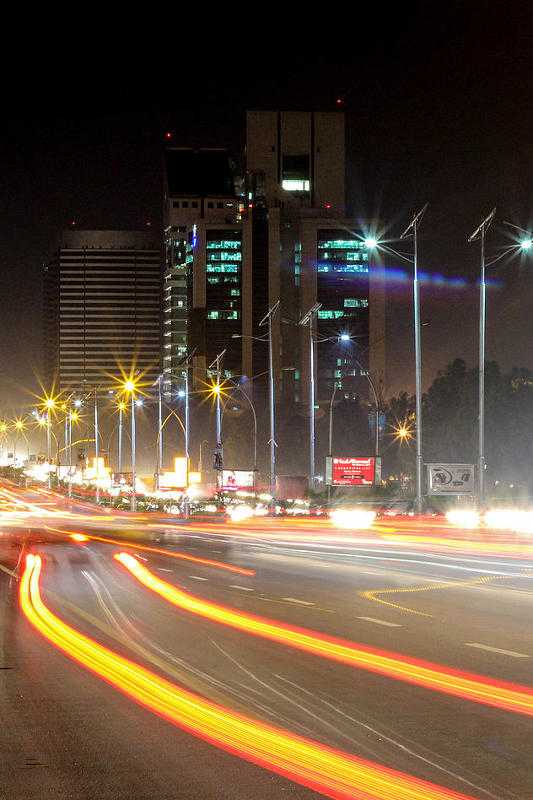
Sustainable and equitable energy
AWP is keenly aware of the impact that the countrywide energy crisis has on the citizens of Islamabad. Our approach to addressing this crisis will be multi-pronged. AWP intends to:
- Regulate the commercial supply of gas to ensure adequate supply to residential households.
- Revise the elitist and discriminatory process through which official meters are issued by the SNGPL. For far too long, the provision of basic amenities has been used by politicians for partisan support. The AWP will prioritize the distribution of gas connections to all areas of the capital on a needs basis.
- The future is now! To efficiently cater to the energy needs of the city, we will establish Solar power systems and LEDs for street lamps and implement a rainwater harvest programme in the city.
- Amend NEPRA SRO 892(1)/2015 to provide commercial incentives for 'positive net energy' alternative energy households and businesses.